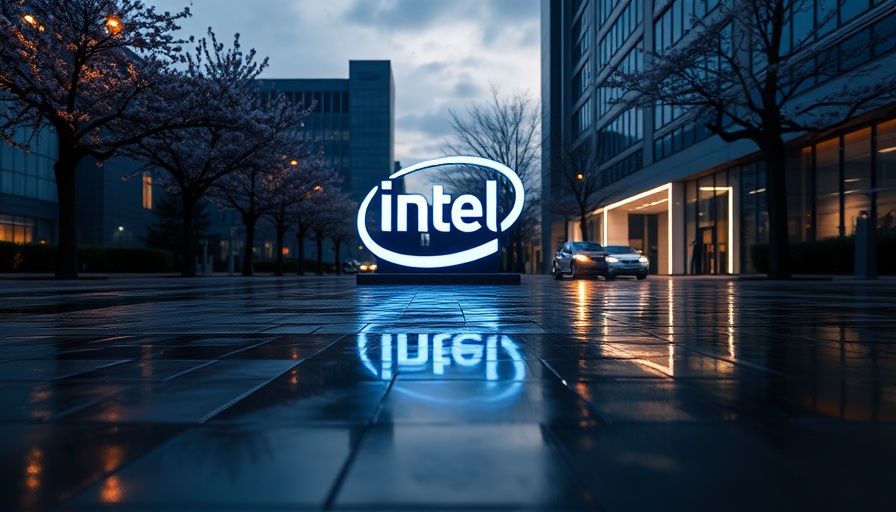
Trump's Assurance: A $8.9 Billion Commitment or Just a Shuffle?
The announcement of a substantial investment in Intel by the Trump administration has raised eyebrows and sparked debate across the tech industry. Predicated on previously awarded grants, the arrangement has invoked discussions about the operational realities of government investments in major corporations. While Intel positions this as an informative venture, many critics question the implications of using funds designated from earlier government initiatives like the CHIPS Act.
Understanding the CHIPS Act and its Impact
The CHIPS Act was designed to bolster American semiconductor manufacturing, aiming to secure supply chains that have increasingly relied on overseas production. Initially signed under the Biden administration, it has undergone scrutiny from various stakeholders, including Trump himself, who vocally criticized the act, labelling it as a “horrible thing.” This critical perspective reflects a broader discontent in parts of the government about the ongoing challenges faced by Intel amidst a competitive global landscape.
Legal Concerns: Could This Deal Face Challenges?
Unpacking the legal nuances of this investment highlights a pressing issue: the potential for lawsuits stemming from the conversion of grants into equity stakes. Some banking and legal experts warn that this transaction may pierce the intended parameters of the CHIPS Act, which complicates the investment’s legitimacy. As such, there linger concerns about the outcome of these legal interpretations which may cloud the future of this deal.
Intel's Responsibility Amidst Federal Support
Intel’s narrative, foregrounded by CEO Lip-Bu Tan’s statement of gratitude towards the Trump administration, serves as a juxtaposition against the backdrop of criticism from officials like Trump himself. This duality creates a pressure cooker environment for the semiconductor titan, urging the company to deliver not just on financial commitments but also on its obligations to the American public and workforce.
Civic Expectations: What Does this Mean for American Workers?
As a nation, the expectation from American industries is to create jobs and stimulate economic growth in response to governmental support. However, this deal raises a pivotal question regarding accountability: how will Intel ensure that its operations fulfill the promises made in light of federal backing? Public perception plays a crucial role, as citizens expect to see tangible benefits from such substantial investments. The greater narrative surrounding job creation, technological advancement, and securing supplies within the U.S. remains to be closely scrutinized.
Looking Ahead: The Future of Semiconductor Investments
The landscape of semiconductor manufacturing is poised for significant transformations. With increasing demand for technology and advancements in artificial intelligence and automation, investments like these could swing either way, yielding results that benefit tech firms or triggering legal and operational challenges.
This situation underscores the importance of observing emerging trends and shifts in policies that could alter the trajectory of companies like Intel and their interactions with the federal government. As the industry evolves, staying informed will be paramount for stakeholders and tech enthusiasts alike.
The arrangement between Intel and the Trump administration provides a potent case study that highlights the delicate balance between governmental support and corporate responsibility. As stakeholders reflect on this pivotal moment, the unfolding developments could redefine investment frameworks in the tech scene.
 Add Row
Add Row  Add
Add 



Write A Comment